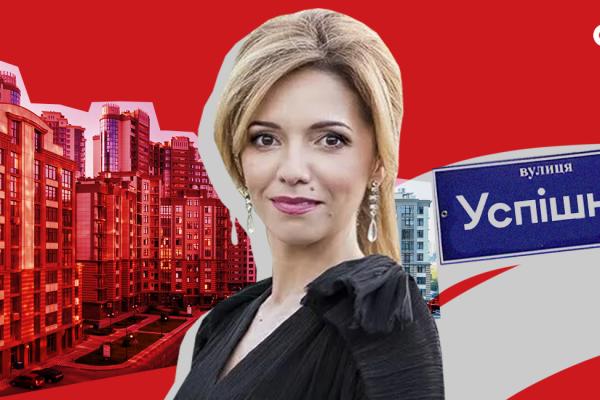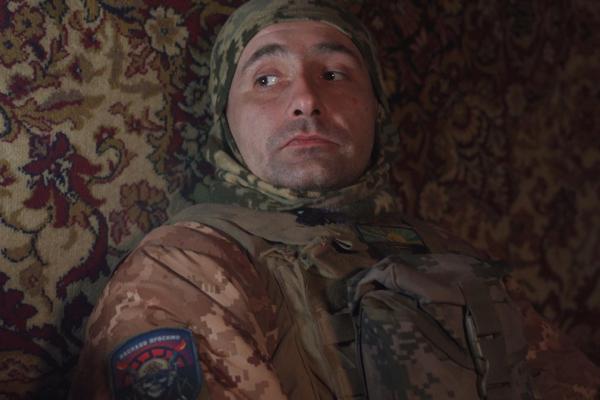More than a million Ukrainians, mainly from the eastern and southern regions, have already been forcibly deported by the Russians to Russia. There they are interrogated and attempted in every possible way to be made a part of Russian society: adults are issued passports, children are sent to schools. Only a few people managed to escape from there to the EU countries and tell how exactly the deportation organized by the Russian authorities is taking place.
Slidstvo.Info continues to publish stories of Ukrainians who are forced to be Russians.
36-year-old Olena and her 9-year-old daughter, who were hiding from shelling in the basement of a local kindergarten in Mariupol, were kicked out of the shelter one day. The occupiers forced them to depart to Russia – that’s how Olena and her family ended up in the city of Kazan, where they were interrogated every day by Russian social services and investigators. Even a child was interrogated. Olena told her story to our journalists.
I WANTED TO HUG THE BABY TIGHT AND NOT TO WAKE UP
In the evening of February 24, the windows trembled because of the explosions. I live on the left bank, where the offensive began. Therefore, we were the first to experience all this. The next day, a shell landed in my daughter’s schoolyard, not far from my grandmother’s house. We took her to our apartment.
Before that, we had already tried to leave Mariupol. But we were told that there was heavy fighting near Volnovakha, the railway connection was interrupted and there were no trains. We had to return home and spend the night in the hallway.
On March 2, my mother looked out the window and saw a shell hit the five-story building opposite our house. It completely demolished two floors and part of the building. Then we ran to the basement of the neighboring house. My 75-year-old grandmother was with us, but she was only able to spend two nights in the basement and returned to the apartment.
When the shelling subsided, my mother and I visited my grandmother, made sure she had water and food. The house was located 50 meters from the basement. It was really scary, we were under heavy fire several times.
Thoughts of suicide came to my mind in the basement. I am a positive person and I have never understood those who commit suicide. But in the basement, such thoughts came to my mind. I wanted to hug my child tight and that we wouldn’t wake up together.
It became quieter on March 25. We looked out from the basement and saw people in military uniforms with white armbands walking around the area. Either from the “DPR” or the Russian army. We thought that they had probably taken over the area and it would be quieter. It may not be right, but all the people were praying that the line of fire would move away from us.

The military came to us and made a list of people. They said that it was necessary to provide some humanitarian aid. When we gave this list, other military personnel came to us. They were Chechens.
They spoke Russian poorly and were definitely Muslims. We had a German shepherd dog in the basement with us, and when the owner went outside with it, the soldier said: “Take the dog away.” The woman answered that the dog was not aggressive. The soldier said, “I’m not afraid, I’m a Muslim, we can’t touch these dirty animals.”
They told us to get our stuff, because the city was going to be cleared of the military of the Armed Forces of Ukraine and we would be able to return only in two days. They told us that we would be taken to a safe place and then we would come back, so we could not even take our belongings with us.
We said that our grandmother stayed in an apartment nearby and we wanted to pick her up. Grandma couldn’t walk and her sight was weak, and we had to help her to pack up. The military told us to get our stuff only and that everyone would be evacuated from that area anyway.
We were simply not allowed to reach our grandmother. We were in such a grip of paralysis because there were a bunch of people with machine guns standing in front of us. They lined up the soldiers every 50 meters from each other. We were led along the sea line, in the direction of Vynohradne (a village on the eastern exit from Mariupol – ed.).
While we were walking, I kept shouting to my daughter Olha to look under her feet. Because somewhere there may be an unexploded projectile or a fragment that could injure her. I understood that the worst thing is to be wounded because there could be no help.
WE WALKED AROUND THE CITY AND LOOKED FOR OUR GRANDMOTHER, WHOM WE WERE NOT ALLOWED TO TAKE WITH US
We were brought to Bezimenne (a village on the shores of the Sea of Azov, 30 km east of Mariupol – ed.) and were placed in a school. There were beds on the first floor, old people who could not walk well laid on them. There were the second and third floors. There were not enough beds, but we managed to grab some old Soviet mattresses. We were fed in the canteen, but we had to stand in a line for two hours, because the school was overcrowded, and people were still coming and coming. So we spent six days like this there. The “DPR” police and the administration of that school were there – they were sent to work there.

540 people were brought with us and no one had any idea what would happen. It was very stressful. You don’t know what is going to happen next. Every day at 12 o’clock we made lists of Ukrainians who is reaching which queue. We were awake and were waiting all the time.
To be honest, I felt more comfortable in the basement because I knew what could happen there. And here I did not know where I would be taken next and when it would happen. We walked around the city and looked for the grandmother, whom we were not allowed to take. At the time of our stay in Bezimenne, there were more than a thousand people.
Since, as we were told, we were “evacuated in an organized manner”, we had to be in a group the entire further way. That is, no one would accept us for filtering in case we were alone. We had no transport and no money, so we just sat and waited.
When we were driven to the “DPR” checkpoint, I turned on my phone. I had a Nokia push-button phone, I was able to get the connection and call my sister to say that we were being forcibly taken to Novoazovsk.
THE HELL BROKE OUT AT THE RUSSIAN BORDER CROSSING
Six days later, some buses arrived and first of all took away people with children. But they didn’t tell us where they were taking us. On the way, we found out that they were taking us to Russia without filtering. We were brought to the Kuibysheve checkpoint (Rostov region – ed.), where we were interrogated later.
Initially, the checkpoint of the “DPR” police was a container located in the field. Our bus was the first, followed by nine more buses. There some information about us hit an unknown database, documents were scanned, and mobile phones were searched through. Every snotty cop out there feels himself like a god. Scrolls my Facebook and almost blames me for fighting at the war too.
Then there was the “DPR” checkpoint, where the military interrogated us and inspected our belongings. This is a former Ukrainian customs point, but now it is no longer equipped with anything. They interrogated me there separately and didn’t invite my family.

Then we were transferred to the Russian border post, that’s where all hell broke loose. Russian border guards treated me like a terrorist. I don’t even know how to describe this moral pressure.
At first I was questioned by only one person. Then I was sent to the waiting room. They kept my phone. My mother and child stayed in another hall. And the thing is that you don’t know what is going to happen with you. It was midnight, we stayed in the field at the border post.
Then I was summoned again for some questioning. They asked seemingly elementary things about where I work, who were my friends, what did I do after the hostilities began. They asked me how I feel about the “military operation held by Russia”. I wanted to die in Mariupol, but I did not want to go to these brutes at all. I hate them so much… They destroyed my life and my city. The emotions wanted to come out, but I understood that I knew I shouldn’t show them.
Each of my answers was followed by an additional provocative question. They tried to make me answer in the way they would not like. This whole interrogation lasted about an hour and a half. I was fingerprinted, photographed from all sides, then we were let go.
We were allowed to enter Russia with our Ukrainian documents, they gave us some pieces of paper that looked similar to migration cards. They were filled by hand there and stamped.

Then they put us on a bus, and let us out only alongside some military personnel. We were treated like prisoners. We were taken to Taganrog by the same bus.
YOU FEEL LIKE A PRISONER WHO CAN’T EVEN GO OUT INTO THE VESTIBULE
And here comes the most interesting. In Taganrog, we were accommodated at the Training School of the Olympic Reserve. This is a large sports complex. There, some folding beds and disposable linen were prepared for us, there were also some basic necessities.
We were told there that there would be a train to Kostroma at 12 o’clock, “Either you go to Kostroma, or you have to vacate a bed in the hall.” That is, you had a shower, had dinner and then could be free. They brought us to Taganrog and let us go to the four winds. People without any money, without any belongings, only some of them having documents. It means you have no money for food or to rent an apartment and no one will shelter or protect you.
There were no volunteers near this center. Some people from the Ministry of Emergency Situations of Russia worked there, they were engaged in organization and transportation. They met us, escorted us so that “no one gets lost anywhere.” They were in uniform with patches. Photocopies of documents were taken, questionnaires were distributed, all information was provided by the Ministry of Emergency Situations of Russia. That’s it, we left “DPR” and the Ministry of Emergency Situations of Russia immediately met us there.

We agreed to go to Kostroma, because it is closer to the European Union than Taganrog. Suddenly they told us, “Let’s go, the train is leaving for Kazan.” We were put in second-class carriages, each of which had 54 seats. We traveled for two days, they didn’t let us out at any station, “so we wouldn’t get lost.”
You feel like a prisoner who can’t even go out to the vestibule to breathe some fresh air. And no one thought of disobeying them, because we were again accompanied by the Ministry of Emergency Situations of Russia’s agents in the wagons. They were armed. This terrible fear has not disappeared from the moment we were kicked out of the basement. So no one asked any more questions.
When we were brought to Kazan, each carriage was opened in turn. Some volunteers and the Ministry of Emergency Situations of Russia were already working there.
There was some television, showing how volunteers and the Ministry of Emergency Situations of Russia help us carry our bags, help the old women and carry those who cannot walk in wheelchairs. Of course, no one voiced the fact that we had no other way out.
WE WERE REGISTERED AS THE VICTIMS OF THE ACTIONS OF THE UKRAINIAN AUTHORITIES
We were accommodated in a Soviet-style hotel, where we were given a room with 4 beds. We were fed breakfast, lunch and dinner, and the next day some special services began coming.
We arrived, filled in the data, were tested for the coronavirus, and they also examined the children for pediculosis and some skin diseases. This hotel has given us a temporary residence permit.
Then we filled out the same forms for different services one by one. Every day we stood in queues, because we were forced to fill in some documents. Copies were made 20 times. The doctors visited us, the children were issued medical cards, and a medical board for the school was already passed. No one was asked if they wanted this or not. We could not refuse it.
When the children were registered for school, they told me, “The child needs to be vaccinated.” I said that I would not vaccinate my child, she was vaccinated and I was not going to send her to school. I was told, “You are a part of the society and you need to be vaccinated.” That’s it, the answer “no” is not accepted.

People brought some stationery because they saw on the news that we had more than 30 children. The most unpleasant thing was that they felt sorry for us, not realizing that it was their country that destroyed us.
The representatives of the school, the medical board, and social services registered us with the employment center. And we had no right to choose. The service arrives, and then walks around the hotel and tells someone to go downstairs. Everyone is called according to the list.
One day, some Russian police investigators came to us. We were gathered together because we were registered as victims of the actions of the Ukrainian authorities. They drew up the protocols for more than two days. They knocked on our room and said that that was the mandatory procedure for everyone.
We were interrogated. The questioning was built in such way that it was impossible to answer the questions truthfully. For example, they asked if I had some property that was damaged by the actions of the Armed Forces, the National Guard or battalions? Or they asked about how I was forced to learn the Ukrainian language? I say, “No one forced us.” Then the question, “And what happened to those who wanted to learn the Russian language?”. I say, “Well, they studied the Russian language.”
They took copies of all the documents we had with us, including some regarding our property and apartments. That’s it, they have a complete package of our documents.
I wrote a statement that I refuse to have my 9-year-old child questioned. The next day, they drew up a protocol from my words, the same as mine but with my daughter’s name and surname on it. And the child was forced to sign it. The investigator’s assistants came to our hotel and walked around so that all the children signed. I say, “I have a little daughter, she doesn’t even have a right to sign any documents.” They say, “We don’t care, let her at least draw a flower!”
We lived in constant interrogation for ten days. There were policemen on duty in the hotel, and if you were going somewhere, you had to say where. After all the interrogations, we could already leave that place. We asked our relatives to give us some money and were able to leave for Latvia.
There was no contact with my grandmother in Mariupol, whom we were not allowed to pick up. She did not know where we were. One day, when we were kicked out of the basement and forcibly evacuated, we simply stopped coming to her.

The last joint photo of Olena with her grandmother in Mariupol, September 2021. In the photo, Olena, her daughter, mother and grandmother, who were together in the occupied city after the beginning of the full-scale invasion of Russian Federation / Photo courtesy of Olena
She was left completely alone and may have thought that we had gone and abandoned her. When we got the Internet, I asked my friends to visit her and say that we didn’t leave her, that’s how it turned out. The other day we received the news that she died. She didn’t succeed in waiting for us.



